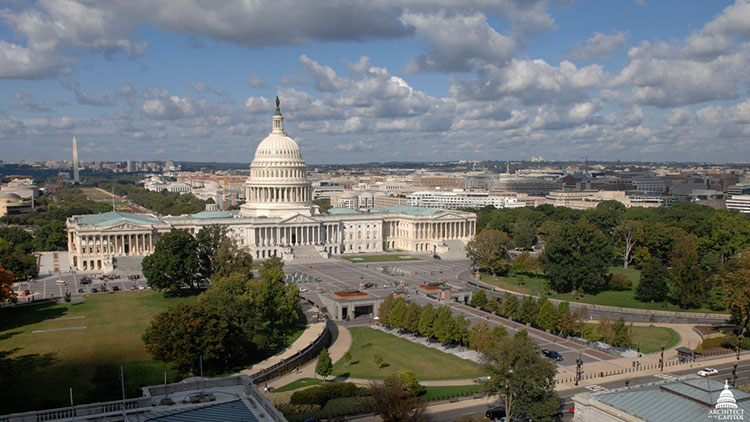House Democrats Offer Quintet of Tech/Broadband Bills

The smarter way to stay on top of broadcasting and cable industry. Sign up below
You are now subscribed
Your newsletter sign-up was successful
House Energy & Commerce Committee Democrats have introduced a quintet of tech-related, particularly broadband-related, bills that would, among other things, help displaced workers get broadband for re-training, address the "homework gap," better target broadband subsidies, and boost tribal access.
“Broadband offers more opportunities for more people—whether it’s getting a better education, applying for new jobs, or training for a new career,” said Rep. Frank Pallone (D-N.J.), ranking member of the committee. "Expanding broadband to places without access attracts new businesses and new opportunities. At a time when so many Americans are feeling uncertainty in their lives, we have a responsibility to help. These bills from Democratic members of our committee will provide a better chance for those who need it most.”
That comes as Republican FCC chairman Ajit Pai has said he plans to focus on closing the digital divide, though Democrats are skeptical given his early moves to rescind Lifeline accreditation from nine companies and a report touting the advances of the low-income broadband subsidy under Pai's predecessor.
The 21st Century Worker Opportunity Act (Debbie Dingell [D-Mich.]) would give workers "displaced by automation" a credit toward broadband service for job retraining and distance learning; The Innovation Corps Act of 2017 (Doris Matsui [D-Calif.]) would provide grants for that retraining and forgive a portion of debt of recent grads who would help with that retraining; The Wi-Fi Capable Mobile Devices Act (Peter Welch [D-Vt.]) would allow low-income students to use a parent's Lifeline connection for homework by accessing it through a WiFi connection using unlicensed spectrum; The Rural Wireless Act (Dave Loebsack [D-Iowa]) would require the FCC to use "more reliable" data when determining where to spend on increased deployment; and The Tribal Digital Access Act (Rep. Raul Ruiz [D-Calif.]), would add "Indian Country" to the definition of areas eligible for Universal Service Fund Lifeline support.
It remains to be seen how far the bills get in a Congress controlled by Republicans with their own ideas about how to deploy broadband and spend federal subsidy dollars.
The Competitive Carriers Association applauded Loebsack's Rural Wireless Access Act.
“I applaud Rep. Loebsack for introducing the Rural Wireless Access Act,” said CCA President Steven K. Berry. “There certainly is a need to improve current data collection methods, as the FCC unfortunately has been relying on inconsistent and inaccurate data when identifying areas with little or no mobile broadband service. There is currently no standard benchmarking for data collection to ensure usable signal strength. This is particularly important for rural areas, where the largest carriers appear to overstate their advertised coverage to the detriment of consumers that live and work there and the carriers that serve these hard-to-reach locations.”
The smarter way to stay on top of broadcasting and cable industry. Sign up below
Contributing editor John Eggerton has been an editor and/or writer on media regulation, legislation and policy for over four decades, including covering the FCC, FTC, Congress, the major media trade associations, and the federal courts. In addition to Multichannel News and Broadcasting + Cable, his work has appeared in Radio World, TV Technology, TV Fax, This Week in Consumer Electronics, Variety and the Encyclopedia Britannica.

